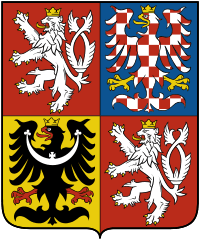A Better collaboration of healthcare professionals and social workers help mentally ill in Opava region - Example of good practice (Supported by the EEA and Norway Grants 2009 - 2014)

- ←
- →
Published
Dozens of projects focused on an improvement of care for mentally ill patients were realized by NGOs and medical institutions throughout the Czech Republic during the last three years. These projects supported by Norway grants enabled a lot of meaningful activities to be carried out in the field of mental health such as the development of multidisciplinary teams taking care of mentally ill patients or informational campaigns raising awareness about mental health issues. There was also established cooperation among the hospital services and follow-up care provided mostly by NGOs such as FOKUS Opava. Norway grants thus prepared the ground for the psychiatric care reform, which followed and is currently being implemented.
The successful treatment of a patient with mental disorders in the hospital shall be followed by his return to the regular life. However, that is not the end of the process. It is this transitional period that can be very demanding for the patient if the professional follow-up care is missing. Occasional visit of psychologist or psychiatrist is often not enough. Patients released from hospitals are in need of regular therapy sometimes even of help with everyday life routine. The risk of a relapse back to a psychiatric hospital significantly increases if specialists don't provide such follow-up care.
To prevent as many relapses situations as possible social workers from FOKUS Opava and medical personnel from the Psychiatric hospital in Opava established the unique system of collaboration. “Thanks to the support from Norway grants we were able to establish a multidisciplinary team and develop its methodology, which should help to change the mental health care in the region. Members of the team work together on identifying risk clients and providing them with rehabilitation interventions,” explained the director of FOKUS Opava Radka Kurtinová.
Intervention meetings usually take place in the client’s natural environment as well as in institutions such as psychiatry hospitals where multidisciplinary team members provide the medical care. Team members are systematically mapping client’s conditions and needs using professional methods. Such a process might take a form of long-term rehabilitation care or eventually assistance in client’s home environment.
Following the medical care, social workers help clients with integration into the labour market. They help them to reinstate the basic skills such as being at the meetings on time, improving their communication skills or practice some garden works. Clients are then offered protected positions to develop gained knowledge in real situations and, after that, they are encouraged to look for a regular job.
Help with integration back to a regular life represents just one of the steps. The missing segment between the care in psychiatric hospitals and social care was also the reason why many people with less severe mental disorders ended up in psychiatric hospitals even if there was no need to. Their diagnosis didn’t require the medical treatment in hospital, but as there was no other alternative of permanent care they had to be placed in a medical institution. Such a situation could even worsen the patient´s condition.
The planned Mental health centres with functioning multidisciplinary team should constitute the above mentioned missing segment of mental health community care. Creation of the network of such centres represents one of the pillars of the ongoing psychiatric care reform in the Czech Republic. One centre per 100 000 inhabitants should be available when the reform is carried out. The main aim of the centres is to provide people with mental disorders with the possibility to deal with their problems in their natural environment, so they are still able to live their life among relatives and friends, but with adequate care and services available.
The psychiatric care reform has recently taken the step from the planning stage into the implementation stage. There were already opened first five mental health centres, and following steps like transformation plans in psychiatric hospitals and multidisciplinary teams are ready for cooperation are in preparation.
Representatives of FOKUS also visited Vestre Viken clinic in Norway to gain experience and knowledge with the Norwegian system of mental health care. “That was the first time I saw how the community care should look like. Vestre Viken facility is very similar to planned mental health centres. Not only in functioning care, but also in the way of thinking and work,” psychologist in social services PhDr. Ivana Strossová described. She added that it is worth to continue in established cooperation with Norwegian partners. Another inspiration from Norway is education and prevention programme for high school teachers and students. The goal of the initiative is to strengthen the ability of students to recognize early symptoms of mental disorders. The Silesian University in Opava would like to with transfer such programme into Czech environment.
Above mentioned projects in Opava region were supported under the CZ 11 Program – Public health Initiatives funded by Norway grants 2009-2014: FOKUS Opava, z.s., reg. no. CZ.11/MGS/005 “Pilot project to create a multidisciplinary team of field methodology for the region Opava and Vítkov” and Psychiatric hospital in Opava reg. no. NF-CZ11-OV-2-032-2015 “The psychiatric hospital in Opava – a creation of conditions for implementation of the transformation of the psychiatric care in Moravian-Silesian region”.

